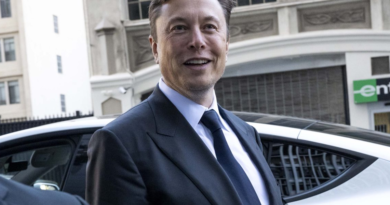The surprise wildcard in tiny Montenegro’s election: a notorious crypto fugitive
Do Kwon, the fraudster behind the failed stablecoin project Terra, was arrested in March. A Korean national who studied at Stanford and based his operations out of Singapore, Kwan had been on the run, using a falsified Costa Rican passport in hopes of reaching Dubai. But when law enforcement finally caught up to him, they nabbed the crypto baron in the most unlikely location: the tiny Balkan nation of Montenegro.
The news puzzled many crypto watchers as Montenegro is not a stop on the conference-heavy blockchain circuit, and few would be able to identify the coastal nation—which lies north of Albania—on a map. But those familiar with the country’s political affairs wouldn’t have been less surprised to discover that Do Kwon had chosen the Adriatic statelet as a hideout.
In recent years, influential figures in the country —long known as a mecca for organized crime—have taken a keen interest in digital currencies and have been trying to build its profile as a crypto-friendly venue. This effort has already borne some fruit.
Most notably, Montenegro awarded citizenship to Vitalik Buterin, the Russian co-founder of Ethereum, who posed for a picture holding its passport. A government finance minister at the time, Milojko “Mickey” Spajic, took credit for the photo-op.
According to news reports at the time, Spajic had invited a group of global crypto experts to visit Montenegro in the belief that they could help develop the country’s economy by attracting investments and creating new, high-paying jobs. But this month, new reports allege that Kwon—who has been in the Balkans for months—had helped finance the political party that Spajic co-founded, Europe Now.
The Montenegrin government has publicly declared that Kwon, who is currently under house arrest, has ties to Spajic. It cited a letter from Kwon to the outgoing prime minister, Dritan Abazovic, in which he claimed that the pair were business partners, and that he donated money to Europe Now’s 2022 local election campaign and to its presidential campaign earlier this year, in which the party’s candidate emerged victorious.
The allegations have set off a political bombshell, as Montenegro holds parliamentary elections this Sunday. Spajic is standing in that election and was, until Tuesday, one of the favorites to become the country’s new prime minister. His opponents have called on the Special State Prosecutor’s Office to investigate whether the assertions laid out in the letter are true. On June 7, the Europe Now party pushed back, alleging that allegations tying the party and Spajic to Kwon are simply political smears.
The truth of the matter remains murky, but it is hard not to regard Kwon’s activities in Montenegro with suspicion. The tiny coastal state of just 600,000 people is known as a hive of drug and cigarette trafficking, and has a history of corrupt politicians flexing their influence to help gangs avoid prosecution in exchange for bribes and other favors. One example of this is the former mayor of the town of Budva, Milo Bozovic, who was recently arrested on suspicion of drug trafficking and other crimes.
Spajic claims that crypto can help develop Montenegro’s economy, but a more cynical guess for the country’s growing enthusiasm for crypto is that the sector that would most benefit from the new industry is organized crime.
All of this raises the stakes for Sunday’s election. Having won the presidential election in March, Europe Now was in pole position to emerge as the largest party in the country’s parliament. Were this still to happen, as the party’s president, Spajic would be one of the main contenders for the job of prime minister, which is the most powerful role in the nation’s political system.
This is certainly his aim and, if he succeeds, the tech-savvy 35 year-old could claim the title as one the world’s first crypto premier. But whether that’s a good thing for Montenegro, the digital currency market, and Do Kwon is unknown.
Djukanovic’s main opponents in Sunday’s election are Andrija Mandic of the Democratic Front, which wants closer ties with neighboring Serbia and Russia, and—allied with Spajic—Jakov Milatovic, a pro-Western economist and the deputy head of Europe Now.
According to Reuters, his opponents says Djukanovic and his part are corrupt with links to organised crime, and that they’ve run the country of only 620,000 people as their personal fiefdom – charges Djukanovic and his party deny.



